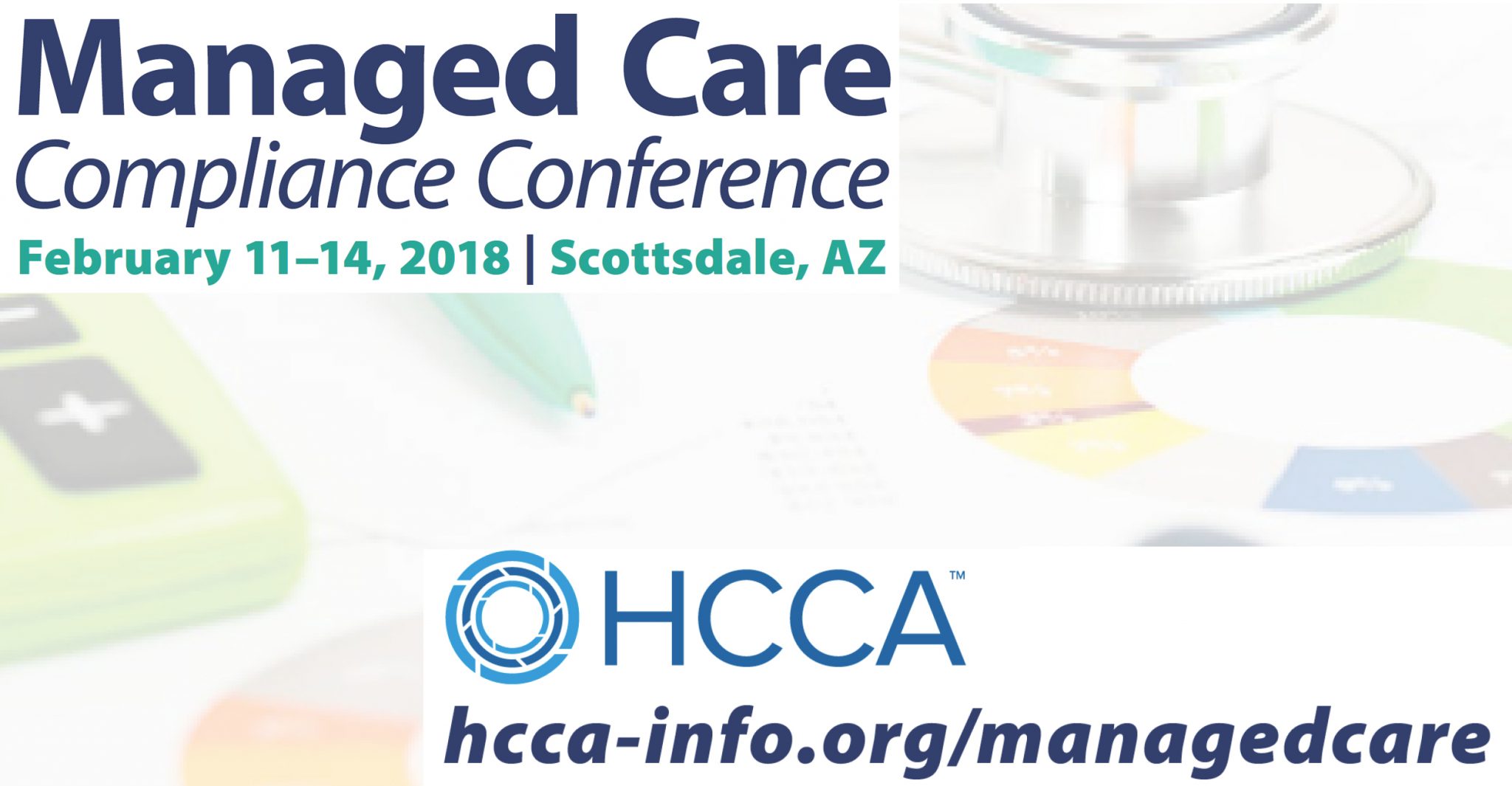– The best resource for monthly healthcare regulatory compliance updates. Compliance Updates: April 2024 Overlook: Licensure Compacts Other Legislation Board Updates Interstate Medical...


Compliance is a word that causes some to cringe. The thought of meeting regulatory and corporate standards through compliance methodology can be daunting—just ask a compliance officer.
There are myriad moving pieces when it comes to compliance. First, there is the consideration of regulatory requirements that shape corporate and best practices guidelines. Then add into the mix, the complex nature of any organization with licensed, certified and accredited health care providers, all unlicensed staff, vendors, contracted talent and all the way up to the C-suite.
Compliance is both the most important and least visible function. The role of the compliance officer can be challenging because of the internal enforcement is followed by accountability to regulatory bodies. The compliance officer must act as the central point of knowledge to a granular scale followed by the education / buy-in / enforcement / audit cycle. This job function is constantly running in the background to protect patients, mitigate fraud and fines to reduce cost and protect the institution’s reputation.
Today’s health care environment is consumer centric where the consumer is often making the decisions about health insurance, plan type, provider, and institution. Now, more than ever, an institution’s reputation for compliance and patient outcomes is one of the driving factors to either attract or repel consumer choices.
With ACA, it might be a patient by patient win or loss, but when a national corporate entity is selecting a carrier and alignment with a health care system, one infraction can harm the reputation with impact lasting decades. Not to mention closures or reduction in services based on massive fines.
At the core of compliance, credentialing and privileging is patient safety. It is the oath, so to speak, of an institution or practice. That should be enough to inspire a program that exceeds the minimums set by governing bodies. With competing budgets across an institution and managed care as a design to reduce costs, it is essential to consider robust compliance as the first line of cost containment. It is irrefutable that mitigating fraud and waste as a measure of patient safety is a solid ROI strategy.
The Health Care Compliance Association (HCCA) was founded in 1995 and along with its sister organization, the Society of Corporate Compliance and Ethics (SCCE) that includes the corporate compliance community, there are more than 15,000 members who believe that compliance is a worthy profession. By providing a platform for compliance professionals to share and learn from collective experience, the HCCA has helped evolve the profession through education, certification and support.
Verisys Corporation was founded in 1992 and was one of the first members with its very business purpose dedicated to providing data and technology that support transparency of providers and entities making for a turn-key compliance program platform.
For more than 25 years, Verisys Corporation has focused on aligning with thousands of primary source publishers and building technology so that all aspects of our health care system can obtain the depth and breath of data available to ensure transparency, thereby improving compliance and quality while reducing costs. Faulty data is at the core of how and why fraud continues to plague the health care industry. Verisys Corporation is fully staffed with data and technology experts who have custom engineered identity resolution algorithms that deliver verification results with 99.9% accuracy. That is the kind of assurance that stops fraud at the door of entry.
I am thrilled to contribute and share the dedication to improve patient outcomes, reduce costs across the board and protect our businesses and employees. The curriculum is packed with vital topics that include: “Finding and Fighting Fraud, Waste, and Abuse within Managed Care Programs: Strategies to Develop an Effective and Robust FWA Program within Your Health Plan while Ensuring Compliance with Federal and State Regulations” presented by Ryan Lipinski, Compliance Officer, Cook County Health & Hospitals System, CountyCare, Lynn O’Dea, Director of Government Programs, Health Care Service Corporation and Catie Heindel, Vice President, Strategic Management Services; and, “Culture of Compliance: Why is Transparency the Best Medicine for your Compliance Program?” presented Maria Phelps, Manager, Enterprise Risk, CareSource and Margaux Frazee, Director of Corporate Compliance CareSource.
The HCCA Managed Care Compliance Conference promises to be a gathering of talented and knowledgeable leaders focused on best practices; demanding transparency to ensure compliance while protecting patients.

Jan Smith Reed has dedicated her career to discovering and implementing the best ways to take a holistic view as a best practice to protect the patient while cutting out the fraud, waste and abuse in health care.
She has a broad swath of expertise as a business-savvy executive with proven results in matrix management. She is well established in both commercial and government health plan management to include self-funded, fully insured, managed care, MAPD, PDP and Medicaid.
She is quick to discern business needs while creating and communicating a vision of desired outcomes through building and motivating cross-functional teams to resolve problems and ensure successful execution.
Ms. Reed is revered as an effective communicator and is tapped for national media interviews, marketing content, market perceptions, and strategies.
#HCCA #managedcarecompliance #patientsafety #improvepatientoutcomes #reducecosts #compliance #ethicsandcompliance #transparencyasbestpractice
 |
Written by Susen Sawatzki Healthcare Industry Expert Muse. Writer. Publisher. Producer. Creator of Inspiring Narratives. Connect with Susen on LinkedIn |